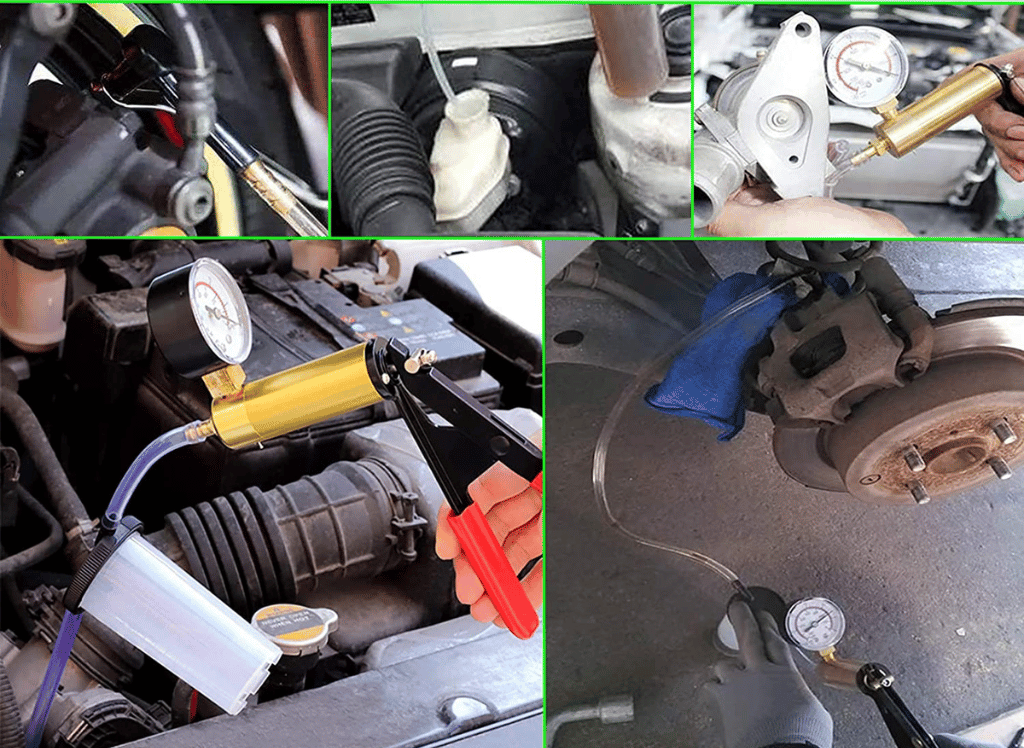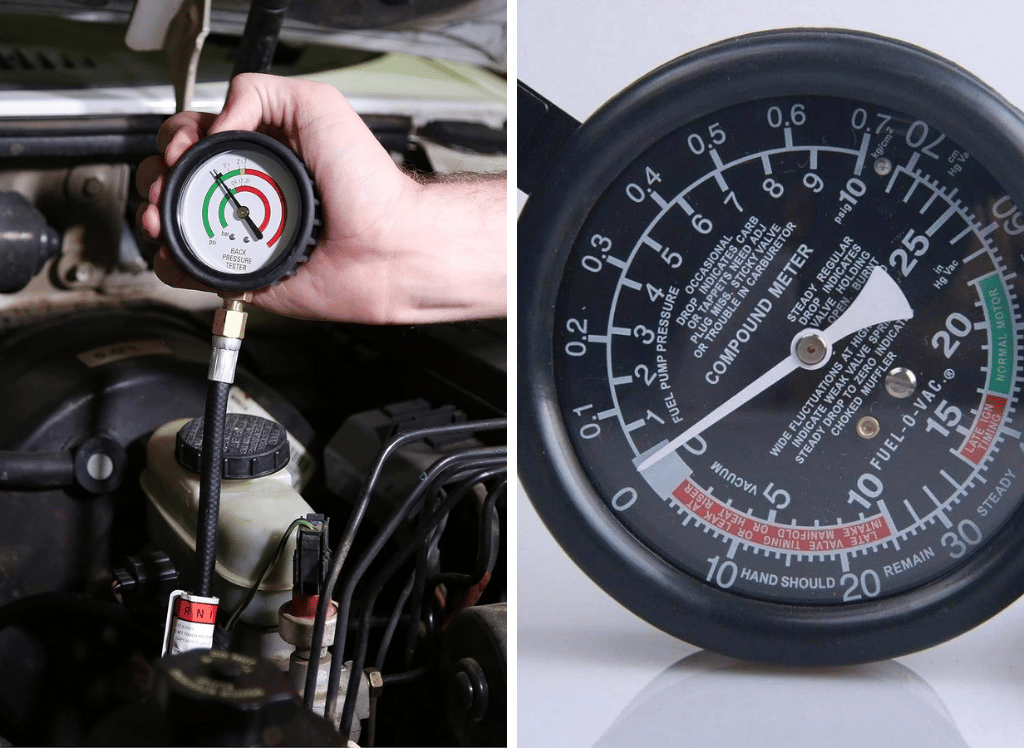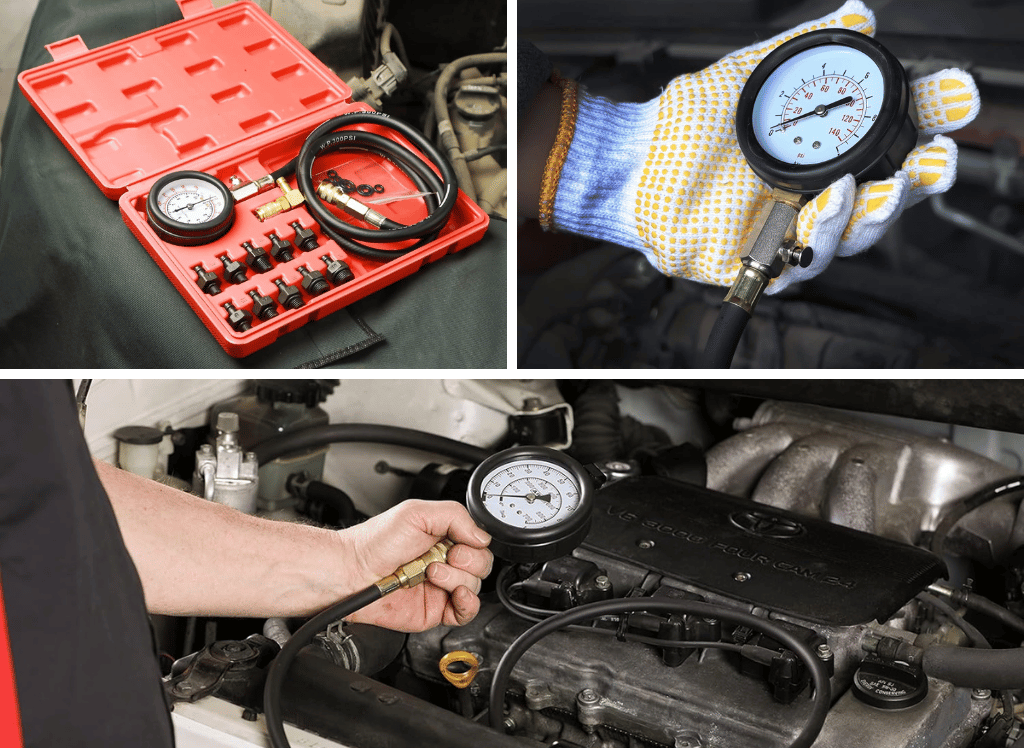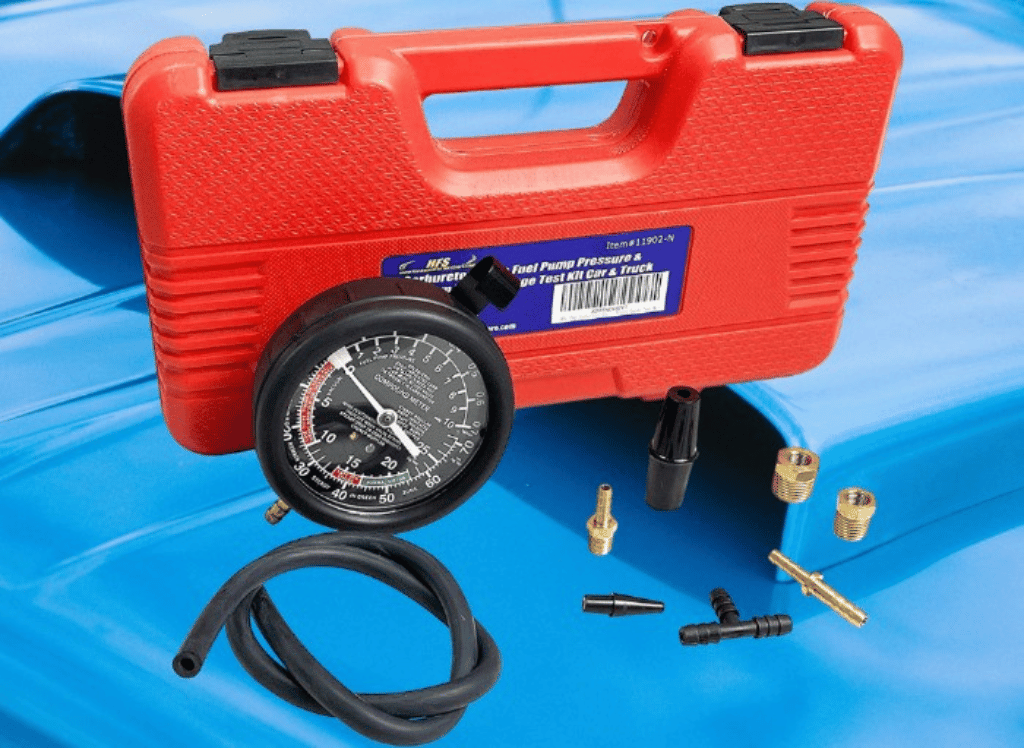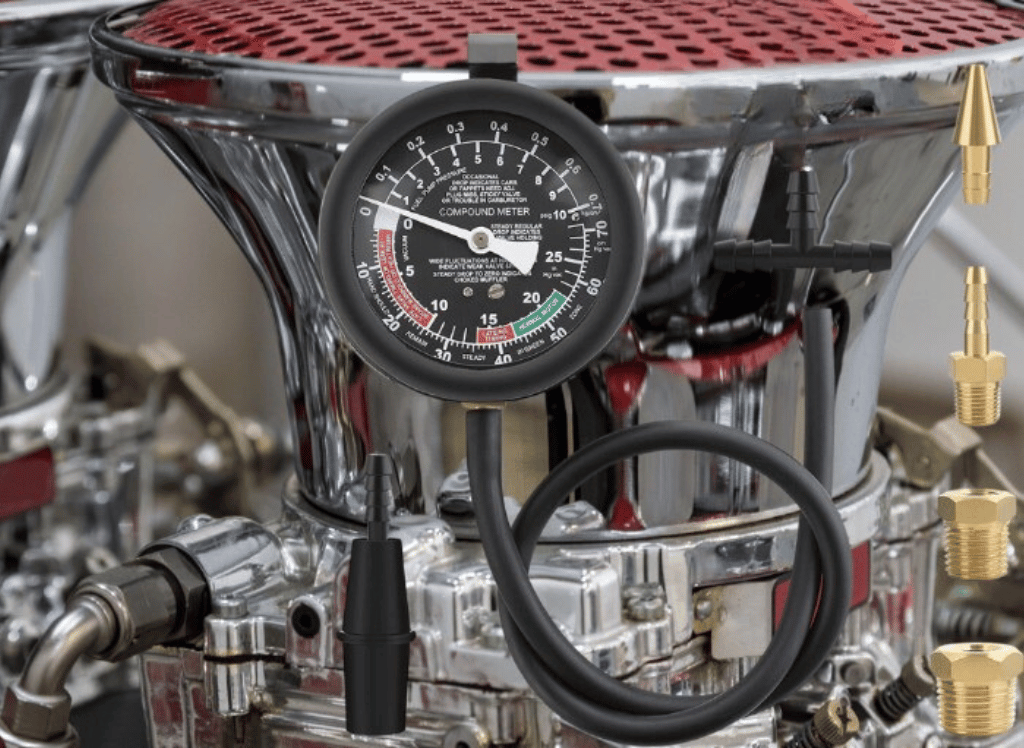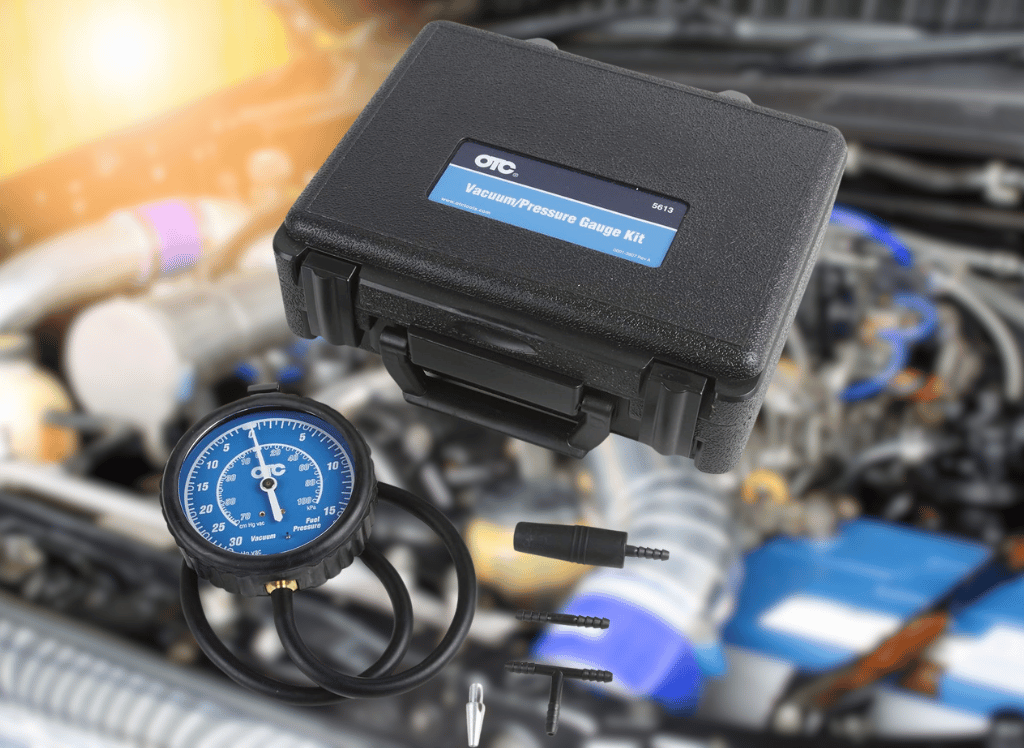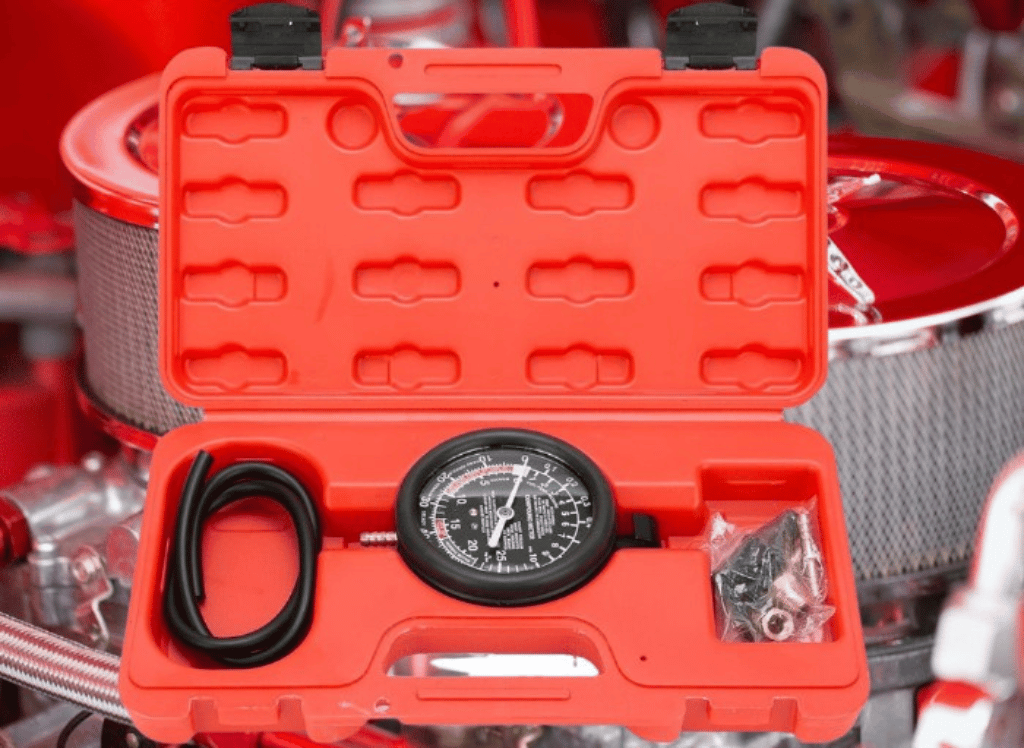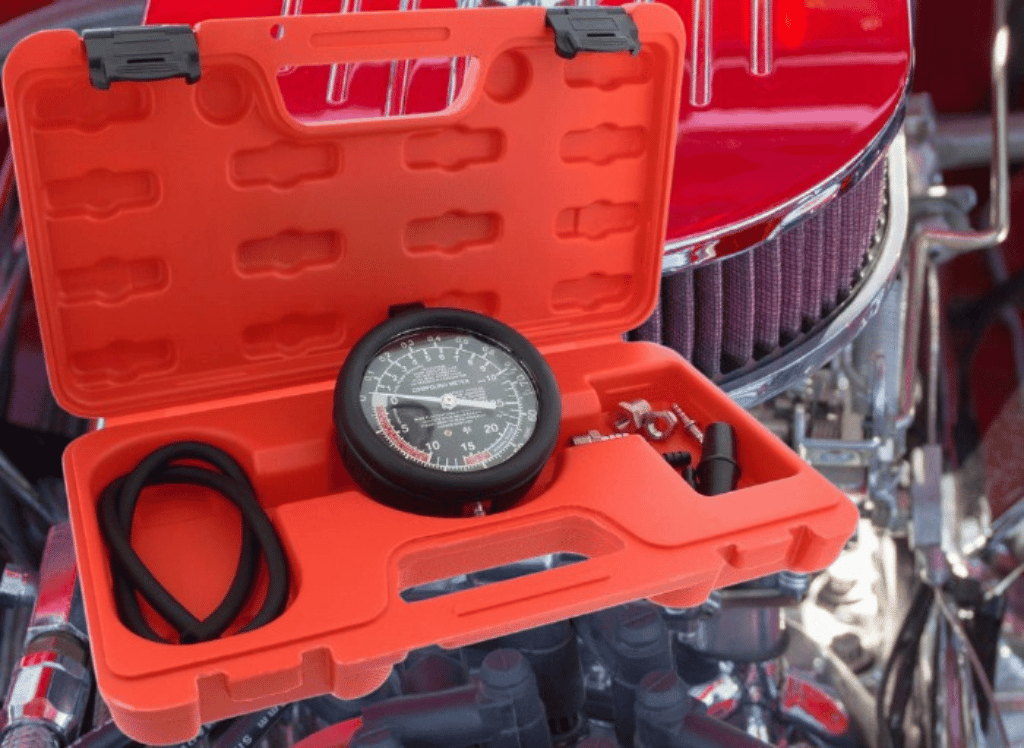Use A Vacuum Gauge To Keep Your Engine In Top Running Shape
Keep that engine running smoothly! Check out our top vacuum gauge selections.
Welcome to Mechanicaddicts. As an Amazon Associate, we earn from qualifying purchases (at no cost to you) from links found within these pages if you choose to buy something.
An engine vacuum gauge is a tool used to measure the amount of pressure in an engine's intake manifold. This measurement can diagnose engine problems, such as leaks or inefficient combustion. The gauge typically features a dial or digital display that shows the level of vacuum in units such as inches of mercury (inHg) or kilopascals (kPa).
By comparing the reading to the specifications for a particular engine, technicians can quickly identify any issues affecting performance. Vacuum gauges are an essential tool in automotive diagnostics, read our article now and get all the information you need about Vacuum Gauge!
How Mechanicaddicts Chooses the Vacuum Gauge
You want to find the best Vacuum gauge for your needs, but with so many options on the market it can be difficult to know where to start.
Not only is researching and comparing products time-consuming, but you also don’t want to waste your money on a product that doesn’t work or meets your expectations.
At Mechanicaddicts we understand this dilemma and have done all of the hard work for you. Our expert reviewers have spent countless hours researching different Vacuum gauges in order to provide you with an unbiased review of each product so that you can make an informed decision when purchasing one. With our help, finding the right Vacuum gauge has never been easier!
Why We Like This Vacuum Gauge
The HFS Vacuum Tester Gauge Test Kit is an essential tool for any car mechanic or DIYer. The kit includes a 3-1/2" diameter pressure gauge to test fuel pump output pressure up to 10PSI, and a 24" long vacuum hose to read engine vacuum up to 28" HG.
With this kit, you can quickly and easily diagnose common problems in your vehicle's fuel system without expensive dealership fees. It's the perfect way to make sure that your car runs as it should.
The HFS Vacuum Tester Gauge Test Kit is the perfect tool for anyone looking to check carburetor settings and valve adjustments on their vehicle. It comes with a range of adapters that are suitable for most vehicles, and all components are packed in a sturdy blow-molded case for convenient storage and transport.
Additionally, product instructions are included in the package to ensure easy use. With this kit, you can quickly diagnose any issues related to your vehicle’s engine performance without having to visit a mechanic.
Why We Like This Vacuum Gauge
The Hromee Fuel Pump and Vacuum Tester Gauge is an invaluable tool for troubleshooting vehicular problems. It can be used to test fuel pump pressure, emissions control devices, mufflers, turbo systems, exhaust systems, gas lines, and more.
The set comes complete with a variety of adapters suitable for most vehicles—allowing you to locate leaks in the valve timing or worn-out rings and seals. This product is intended specifically for carburetor engines running with fuel pumps below 10 PSI (0.7 Bar), making it ideal for small businesses or DIY mechanics. With this multi-tasking device from Hromee you'll have all your diagnostic needs covered!
The Hromee Fuel Pump and Vacuum Tester Gauge is an essential tool for any mechanic or car enthusiast. This gauge has a 4-inch diameter with large, color-coded measurements that are easy to read and use. The range of the vacuum dials is 0-28in/Hg Vac, 0-70cm/Hg while the range of pressure dials goes from 0-10 psi/g to 0-0.7 kg/cm2.
In addition, this kit comes with a 2ft rubber hose (13/64” ID, 23/64” OD) as well as various other accessories including conical adapters, plastic connectors, and more - all designed to make testing fuel pumps and vacuums easier than ever before.
Why We Like This Vacuum Gauge
The OTC 5613 Vacuum/Pressure Gauge Kit is indispensable for automotive professionals and enthusiasts. Designed to test vacuum lines and low-pressure fuel systems accurately, the kit is highly effective in diagnosing internal engine issues, such as faulty rings, valves, and leaking head gaskets.
The kit can pinpoint elusive problems like cracked lines, so it ensures comprehensive troubleshooting. The included adapters cater to various applications, making it versatile and user-friendly. The dual-purpose gauge, featuring a large 3-1/2" display with a chrome bezel and protective outer boot, provides four different readings for precision diagnostics.
The built-in rear hook also allows the gauge to be hung conveniently at eye level. Ensuring durability and ease of storage, the kit comes in a sturdy blow-molded hard case with a removable lid, which also houses a detailed instruction chart.
True to OTC's commitment to value, this kit offers reliable solutions for simple repairs and complex drivability issues, enhancing technician productivity and shop profits. With its wide range of applications and reliable performance, the OTC 5613 Vacuum/Pressure Gauge Kit is a must-have for any automotive professional or DIY enthusiast. Upgrade your diagnostic capabilities with this top-quality tool from OTC.
Why We Like This Vacuum Gauge
8MILELAKE’s Fuel Pump and Vacuum Tester Gauge is an invaluable tool for every automotive technician This gauge allows you to test fuel pump output pressure up to 10PSI and read engine vacuum up to 28, giving you a better understanding of the performance of your car’s fuel system.
The gauge comes with large 3-1/2 inch adapters suitable for most vehicles, making it versatile and convenient when inspecting your car or performing repairs. When not in use, store this handy item in its blow mold case for easy organization and portability.
With 8MILELAKE's Fuel Pump & Vacuum Tester, efficiently maintain your car’s proper functioning and save yourself time, money, and hassle!
The 8MILELAKE Fuel Pump and Vacuum Tester Gauge is a great tool for diagnosing fuel delivery pressure issues in engines. This device can check the fuel pump system, the carburetor settings, and valve adjustments to ensure that all components are working correctly.
It also has a vacuum test feature that allows users to detect worn or defective parts within their vacuum systems. With this tester gauge, you can quickly diagnose any problems with your vehicle's fuel delivery system and make necessary repairs before further damage occurs.
Why We Like This Vacuum Gauge
The ABN Car Vacuum and Fuel Pump Tester Gauge Kit is the perfect tool for checking your vehicle for worn or defective parts. With this kit, you'll have everything you need to check fuel delivery pressure and vacuum levels in carburetor engines operating under 10 PSI (0.7 Bar).
It comes with a variety of adapters suitable for most vehicles making it easy to test any car. This affordable and efficient gauge kit will save you time and money while keeping your engine in top shape!
The ABN Car Vacuum and Fuel Pump Tester Gauge Kit is a comprehensive tool for troubleshooting fuel pump pressure, fuel pump vacuum, carburetor intake manifold, and vacuum test. This kit comes with an easy-to-read 4-inch diameter color-coded pressure gauge that has rubber side notches for a secure grip.
It also includes an extra long rubber hose and 14mm/18mm manifold adapter that can withstand up to 40 PSI (2.8 Bar) of maximum working pressure and 0-28 IN-Hg (0-70 cm-HG) of vacuum as well as 0-10 PSIG (0–0.7 kg/cm²) of pressure. The included assembly and operating instruction manual make it easy to use this tool effectively in any car maintenance job.
Vacuum Gauge FAQs:
Don't worry - we've got you covered! We've compiled a list of frequently asked questions so that you can make an informed decision with total confidence. With our help, finding the perfect Vacuum gauge for your needs is easy and stress-free!
1. What Is a Vacuum Gauge?
A vacuum gauge is a device used to measure the amount of vacuum, or by extension, the pressure present in an enclosed space. It works by measuring the difference between atmospheric pressure and the local absolute pressure inside a container.
Vacuum gauges can be used for various applications such as air conditioning systems, thermal conductivity measurements, and leak detection in sealed containers.
Types of vacuum gauges include the Pirani gauge, Bourdon tube gauge, and thermocouple gauge among others. The readings obtained from these gauges are then interpreted to obtain perfect vacuum levels as well as accurate gas pressures at any given temperature.
By using a combination of different types of vacuum gauges mentioned above, it is possible to accurately measure both high-vacuum pressure and atmospheric pressure with ease.
2. Can Vacuum Gauges Measure Vacuum Pressure and Atmospheric Pressure?
Yes, vacuum gauges can measure both the vacuum pressure and atmospheric pressure. Vacuum gauges are commonly used to measure the difference between atmospheric pressure and absolute pressure inside a container, so they can be used to measure both high-vacuum pressures and atmospheric pressures across different temperatures.
3. What Is a Gas Vacuum Gauge Used For?
A gas vacuum gauge is a device used to measure the pressure of gas molecules inside an enclosed space. It works by measuring the difference between atmospheric pressure and the local absolute pressure inside a container.
Gas vacuum gauges are essential for many applications such as air conditioning systems, thermal conductivity measurements, and leak detection in sealed containers. They can also be used to measure the pressure of gas molecules in chemical reactions, allowing you to make precise adjustments when needed.
Gas pressure measurement is a delicate balance of carefully tracking the gas molecules within while taking accurate vacuum readings to ensure an even vacuum. But this process can be difficult - heat loss and fluctuations must also be considered for reliable results!
4. What Would Cause High Vacuum Pressure in a Vehicle Vacuum System?
The high vacuum pressure in a vehicle's vacuum system can be caused by a variety of factors. The most common cause is a leak in the intake manifold. This type of leak commonly occurs if the gasket between the intake manifold and cylinder head is worn out or damaged, allowing air to enter the system.
When this happens, it causes an increase in vacuum pressure. Other potential causes of high vacuum pressure include a defective or stuck valve, an air leak in the exhaust system, or a problem with the fuel pump. If any of these issues are present, it is important to have them repaired as soon as possible to ensure the optimal performance of your vehicle's engine.
5. What Psi Is the Full Vacuum?
A full vacuum is defined as a pressure of 0 PSI, which is equivalent to absolute zero atmospheric pressure. This means that all air molecules have been removed from space, creating a nearly perfect vacuum.
To put this into perspective, the average atmospheric pressure at sea level is around 14.7 psi, while the full vacuum is a much lower 0.0 psi. Full vacuum is often used in scientific experiments and in industrial processes where a perfect lack of air molecules is desired.
A full vacuum can also be achieved using specialized pumps or by depressurizing a sealed container. Accurate gauges are required to measure the pressure present in any given space, so make sure you have the right one for the job.
Final Thoughts about Vacuum Gauge
Vacuum gauges are essential tools for any professional working with vacuum systems. They provide crucial information about the pressure within a system, allowing you to adjust your equipment accordingly and ensure safe operation at all times.
With their wide range of applications in many industries, it’s no surprise that these instruments have become so popular over the years. Whether you need one for industrial operations or laboratory work, make sure to shop around until you find the right gauge for your needs.
#EngineVacuum #VacuumGaugeTester #AutomotiveTools #CarMaintenance #DIYMechanics #EngineDiagnostics #VehicleRepair #MechanicLife #AutoTech
Thank you for reading!
Your friend,
Todd
